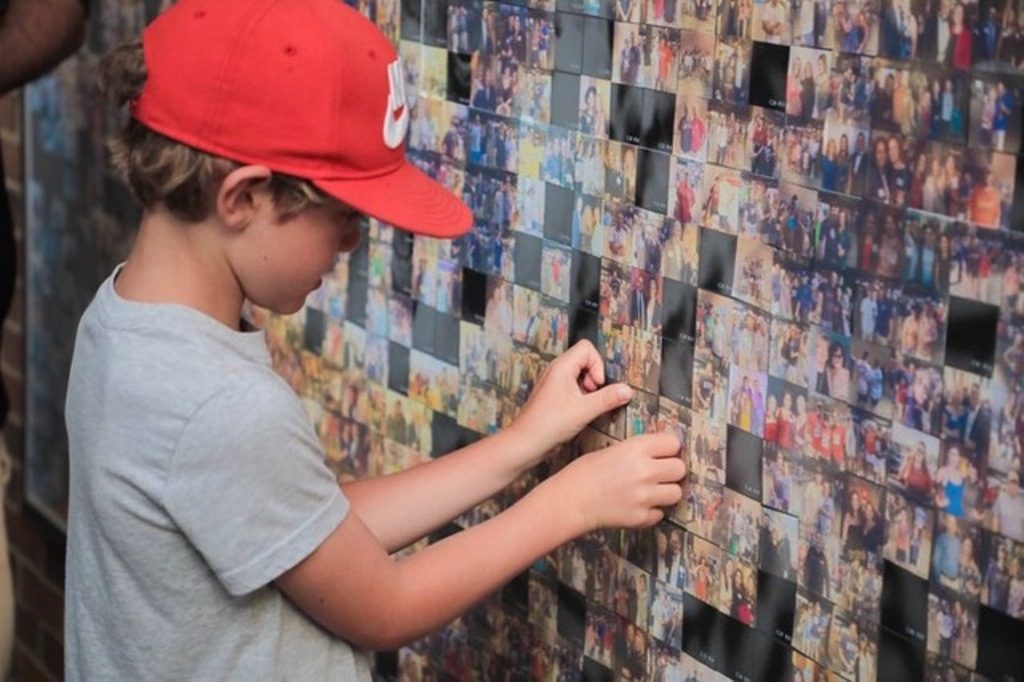
Upper Peninsula residents are invited to take part in the first-ever traveling Michigan Wildlife Photo Mosaic Wall.
The event will be appearing at the UP State Fair in Escanaba August 16th and 17th.
All fair visitors are invited to pose for live-event, real-time photos illustrating how people are necessary for wildlife management.
Sponsored by the Michigan Wildlife Council, this is the mosaic wall’s only stop in the U.P. and is part of a statewide celebration of the nationally heralded efforts the state is making to ensure Michigan’s wildlife and natural resources are preserved for future generations.
It’s part of an overall effort to emphasize that hunting and fishing licenses – not taxes – pay for the conservation of Michigan’s forests, waters and wildlife.
In 2018, nearly $61 million was generated for Michigan conservation through the sale of hunting and fishing licenses.
Here is the full press release:
ESCANABA – Upper Peninsula children, their families and wildlife aficionados of all ages are invited to become part of the first-ever traveling Michigan Wildlife Photo Mosaic Wall Aug. 16-17 during the Upper Peninsula State Fair.
The once-in-a-lifetime experience celebrating Michigan’s outdoor heritage will make its U.P. debut at the Upper Peninsula State Fairgrounds, 2401 12th Ave. N. in Escanaba. All fair visitors – from young children and families to teens and grandparents – are invited to pose for live-event, real-time photos illustrating how people are necessary for wildlife management.
Sponsored by the Michigan Wildlife Council, this is the mosaic wall’s only stop in the U.P. and is part of a statewide celebration of the nationally heralded efforts the state is making to ensure Michigan’s wildlife and natural resources are preserved for future generations.
“Our state is recognized throughout the U.S. as a leader in wildlife management, so it’s appropriate that we celebrate Michigan’s many wildlife conservation success stories,” said Michigan Wildlife Council Chair Matt Pedigo. “At the same time, it’s important for the public to know about the essential role hunters and anglers play in conserving, managing and protecting Michigan’s wildlife.”
At the Michigan Wildlife Council booth in the Ruth Butler Exposition Building from 10:30 a.m. to 4 p.m. and Grandstand Building #1 from 6 to 11 p.m., participants will have photos taken that print their facial image as a sticker. They can then place their photo sticker on the mosaic board, which will appear as an 8-foot-wide by 4-foot-tall artistic image of a lake sturgeon – one of Michigan’s many wildlife success stories. Participants will also receive a free souvenir photo. (See an example of the lake sturgeon planned for the Upper Peninsula State Fair here.)
“The photo mosaic wall makes everyone at the event feel like once you look at the big picture, we’re all in it together. From up close, you see individual photos – as you move farther back, the mosaic of each wildlife species’ beauty is revealed,” said Sheila Krueger, associate director of the Delta County Chamber of Commerce.
During the Crim Festival of Races Aug. 23-24 in Flint and a Michigan State University football game Sept. 7 in East Lansing, participants will create additional images of an elk and osprey, respectively. After the statewide tour, the final versions of each Michigan Wildlife Photo Mosaic Wall will be displayed at the Michigan History Center in Lansing.
“Each of the images was selected to represent the unique relationship that exists between Michigan’s abundant wildlife, the people who take care of it and the people who enjoy it,” Pedigo said.
More than a thousand people have already taken part in the creation of peregrine falcon and Kirtland’s warbler photo mosaics at Detroit’s Comerica Park and Grand Rapids’ John Ball Zoo.
The events highlighted that Gov. Gretchen Whitmer and the Michigan Legislature declared July as “Michigan Wildlife Conservation Month.” The proclamation reflects that July 1 marks the 81st anniversary of the effective date for the Pittman-Robertson Federal Aid in Wildlife Restoration Act, which ensured wildlife management projects nationwide would be funded by the purchase of hunting equipment.
The proclamation also coincides with the five-year anniversary of the creation of the Michigan Wildlife Council, which is a bipartisan-approved panel tasked by the Legislature with conducting a public education campaign emphasizing the importance of wildlife management and the role hunting and fishing play in protecting and enhancing Michigan’s wildlife and natural resources.
This year’s efforts emphasize that hunting and fishing licenses – not taxes – pay for the conservation of Michigan’s forests, waters and wildlife. In 2018, nearly $61 million was generated for Michigan conservation through the sale of hunting and fishing licenses.
Among the wildlife success stories that legislators, Whitmer and Michigan Wildlife Council members are encouraging Michiganders to celebrate are:
- The comeback of lake sturgeon – Michigan’s largest and longest-living fish species – in Lake Superior, the Ontonagon River and the Detroit/St. Clair River System. Known as “dinosaur fish,” lake sturgeon are members of a family of fish that’s existed for over 100 million years.
- Recognition of the 100th anniversary of the successful reintroduction of Rocky Mountain elk to Michigan after near extinction.
- The restoration of Michigan’s wild turkey population from 2,000 in 1960 to 200,000 today.
- The resurgence of the peregrine falcon, Kirtland’s warbler and osprey, which were nearly wiped from Michigan’s landscape in the last century.
Fair admission is $8 for adults and $5 for ages 6-12 at the gate; participation in the Michigan Wildlife Photo Mosaic is free with entry.
For more information about wildlife and habitat conservation, visit Michigan Wildlife Council.
 Keweenaw Report Your Source for Local News and Sports
Keweenaw Report Your Source for Local News and Sports





